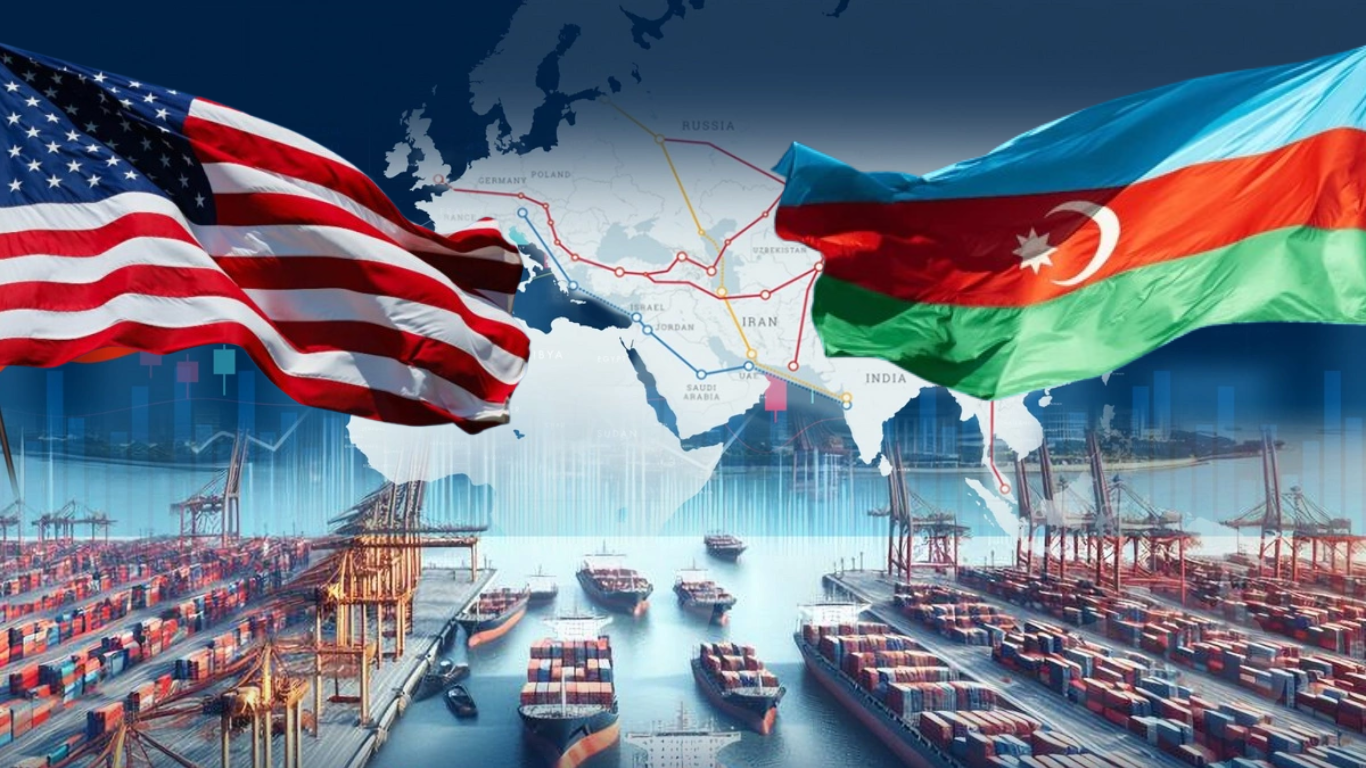Industrial steel over crude oil: New model for US-Azerbaijan relations

In a time when energy diplomacy often conjures images of oil tankers and pipelines, Azerbaijan is offering a new chapter—one written not in crude oil but in steel and silicon. The South Caucasus nation, historically seen through the prism of its oil reserves, is quietly engineering a shift that could redefine its economic identity and strengthen transatlantic ties: a surge in non-oil exports, particularly to the United States.
Over the last five years, Azerbaijan’s non-oil exports to the U.S. have grown at an impressive pace. While energy still dominates bilateral discussions, the United States now ranks among Azerbaijan’s top seven non-oil export destinations. This statistic may seem unremarkable in isolation, but it represents a subtle and important pivot in Azerbaijan’s trade architecture—one that carries geopolitical as well as economic weight.
Central to this evolving relationship is the strategic cooperation in industrial production. A recent visit by the U.S. Embassy’s Economic Affairs team to Sumgayit’s Baku Steel Company reveals not just diplomacy in motion but a deliberate deepening of mutual interest. There, American officials examined the production of seamless steel pipes used in the oil and gas sector—pipes that are increasingly exported to the United States and deployed across the American energy landscape, from drilling fields to transportation networks.
These are not merely raw materials; they are highly engineered products embedded with technological sophistication and significant added value. Their journey from the Caspian to the American Midwest tells a story of industrial integration and trust.
Beyond pipes, ferroalloys—essential inputs in steel production—are also becoming a key pillar of Azerbaijan’s export portfolio. Facilities like Baku Non Ferrous and Foundry Company, also in Sumgayit, have adopted Italian technology to manufacture ferrosilicon and ferrosilicomanganese on a commercial scale. These ferroalloys are already feeding American steel mills, quietly becoming part of the material DNA of U.S. infrastructure.
The symbolism here should not be lost. In an era where “de-risking” supply chains and reducing dependency on geopolitical rivals are top priorities for Western economies, Azerbaijan presents itself as a stable, business-friendly alternative. A Muslim-majority country with strong ties to both the East and West, Azerbaijan is uniquely positioned to bridge global trade divides. Its decision to invest in high-value manufacturing and enter advanced supply chains reflects foresight—and a desire to be seen as more than just a fossil fuel state.
The benefits of this diversification are not one-sided. For Azerbaijan, the expansion of non-oil exports is crucial for long-term economic stability. The volatility of global oil prices has long haunted petro-economies, and Azerbaijan is no exception. By cultivating sectors like metallurgy and advanced manufacturing, Baku is not only boosting GDP but also creating sustainable jobs and embedding itself into global production networks.
For the United States, the relationship offers both practical and strategic gains. Reliable, quality inputs for domestic industry are in short supply, especially those not linked to geopolitical adversaries. Tapping into Azerbaijan’s manufacturing base helps diversify sourcing while supporting a partner that shares American interests in regional stability and open trade.
Yet, the partnership must go further. Visa challenges for Azerbaijani exporters and technical personnel still complicate smoother cooperation. Likewise, financial frameworks for bilateral investment need strengthening. If Washington is serious about building a resilient and diversified global trade ecosystem, then now is the time to invest—diplomatically, commercially, and politically—in partners like Azerbaijan.
As U.S. companies explore new frontiers for investment, they should take note of Sumgayit. Once known primarily as a Soviet-era chemical hub, the city is emerging as a showcase for post-oil Azerbaijan: a place where foundries hum with global ambition and factory floors are designed for export, not just domestic consumption.
A nation’s transformation rarely arrives all at once, and Azerbaijan’s journey is far from complete. But if there is one lesson from recent developments, it’s that industrial steel can sometimes build stronger bridges than oil ever could.
Here we are to serve you with news right now. It does not cost much, but worth your attention.
Choose to support open, independent, quality journalism and subscribe on a monthly basis.
By subscribing to our online newspaper, you can have full digital access to all news, analysis, and much more.
You can also follow AzerNEWS on Twitter @AzerNewsAz or Facebook @AzerNewsNewspaper
Thank you!

